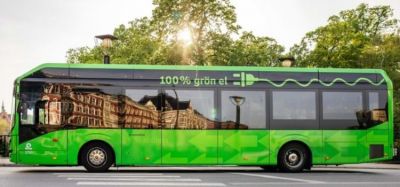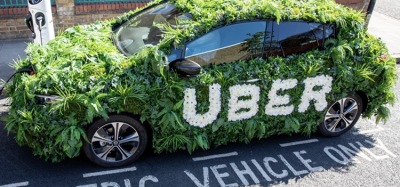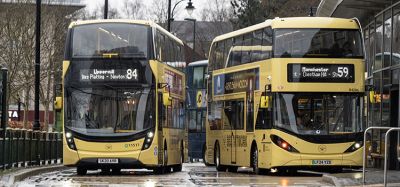LowCVP study identifies cost-effective options for cutting UK bus emissions
- Like
- Digg
- Del
- Tumblr
- VKontakte
- Buffer
- Love This
- Odnoklassniki
- Meneame
- Blogger
- Amazon
- Yahoo Mail
- Gmail
- AOL
- Newsvine
- HackerNews
- Evernote
- MySpace
- Mail.ru
- Viadeo
- Line
- Comments
- Yummly
- SMS
- Viber
- Telegram
- Subscribe
- Skype
- Facebook Messenger
- Kakao
- LiveJournal
- Yammer
- Edgar
- Fintel
- Mix
- Instapaper
- Copy Link
Posted: 3 July 2013 | Low Carbon Vehicle Partnership | No comments yet
A wide range of innovative technologies can cut carbon emissions from buses…


A wide range of innovative technologies can cut carbon emissions from buses and provide a short-term payback at current fuel prices and subsidy levels according to a new report prepared for the Low Carbon Vehicle Partnership (LowCVP) by Ricardo.
The aim of the LowCVP study was to identify a range of low carbon fuels and technologies which can cost-effectively reduce well-to-wheel CO2 emissions for urban buses in the UK. The report developed technology roadmaps to illustrate when these technologies are likely to be ready for deployment into the bus market, focusing on the timescales 2012-2020 and 2020-2050. The study also examined the wider role of the selected fuels and technologies for decarbonising heavy goods vehicles.
The report focuses on a variety of promising vehicle and powertrain technologies including light weighting, battery electric and various hybrid architectures including stop-start, mild, diesel electric, mechanical flywheel, and hydraulic hybrids. The study also covered a range of alternative fuels including compressed natural gas, biomethane, hydrotreated vegetable oil, second generation biodiesel and hydrogen. Payback times for the selected technologies for both single and double-deck vehicles were calculated both with and without current UK bus subsidies.
The study confirmed a number of technologies (e.g. full electrical hybrid) with the potential to make very significant improvements of over 30 percent to bus CO2 emissions, but showed that the most technically effective technologies can have high investment costs with payback periods as long as 20 years – and hence intervention in the form of subsidies or regulation is required to encourage their implementation.
The study also identified several technologies (such as mild hybrid and flywheel hybrid) for which the emission benefit was slightly smaller, but still significant at up to 20 percent, and with payback periods of less than four years – which could be commercially feasible without subsidy.
In the area of fuels, the study showed that the use of biofuels can give significant reductions in well-to-wheels CO2 emissions. Biomethane could be particularly attractive as a drop-in fuel to replace fossil derived natural gas. However, available subsidies or incentives, the economics associated with developing an adequate infrastructure, and the price of the fuel itself will determine the rate of adoption.
Overall the study indicates that significant improvements in bus CO2 can be achieved in the medium to long term through development, incentivisation (or regulation) and implementation of new vehicle technologies and fuels.
Transport minister Norman Baker MP, commenting on the publication of the report, said: “The Coalition Government is committed to cutting carbon emissions from transport and buses have a key role to play. The Green Bus Fund has helped us on our way to achieving this, with significant investment in green technologies offering carbon savings of 30 per cent or more compared to diesel buses.
“This important report highlights new and emerging low carbon technologies which, importantly, will allow bus operators to see a return on their investment without Government subsidy in less than 5 years”.
The LowCVP managing director, Andy Eastlake, said: “Efforts to promote bus usage must go hand-in-hand with moves to introduce greener, more efficient vehicles. Buses produce about 2 percent of the UK’s greenhouse gas emissions and, though a relatively small proportion of the total, this sector has high visibility and should continue to show leadership in the battle against climate change.”
“This report complements the Automotive Council’s technology roadmaps development work, identifying the optimal solutions for bus operation from an environmental and economic perspectives.”
Ricardo chief technology and innovation officer Prof. Neville Jackson added: “Buses are an important element of the UK road transportation mix, particularly within our larger towns and cities. It is important therefore that fleet owners and operators, as well as public transport authorities, are able to make optimal new vehicle selections based on informed judgements regarding low carbon, fuel efficient technologies.
“I believe that this report provides valuable insights regarding the potential of low carbon vehicle technologies that will help the UK bus industry ensure that the bus fleet of tomorrow is both commercially and environmentally sustainable.”
To download the full report, click here.
Related topics
Air Quality, Transport Governance & Policy
Related people
Norman Baker








